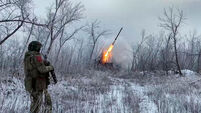Public under pressure as gas and oil prices rise again amid Ukraine crisis

Growing tensions around Ukraine, and the resulting European sanctions on Russia, look set to keep the squeeze on living standardss of Irish households. Picture: Niall Carson/PA
The fallout from the escalating tensions around Ukraine looks set to keep the squeeze on the living standards of Irish households, as the wholesale price of gas and crude oil rose again on Wednesday.
Analysts fear that a further escalation will lead to sanctions on gas and oil and foodstuffs such as wheat even though western Europe and Russia are mutually dependent on each other as a major customer and supplier of energy and food.














